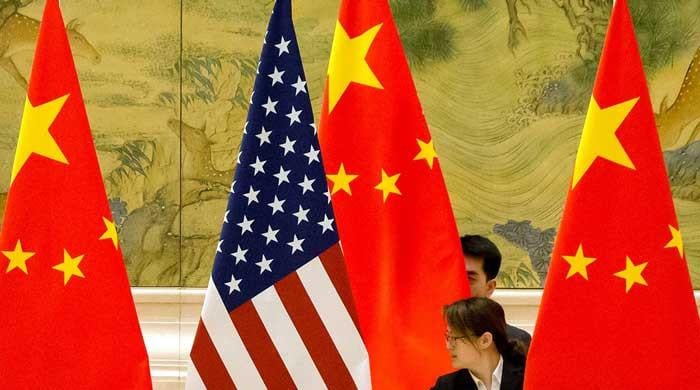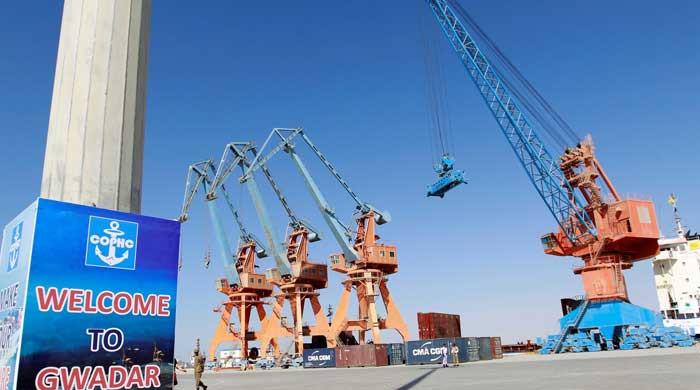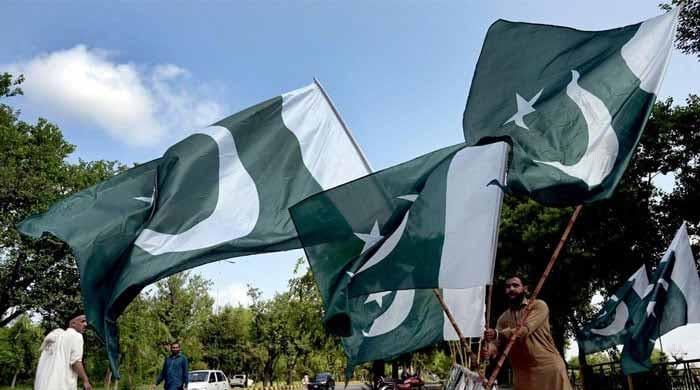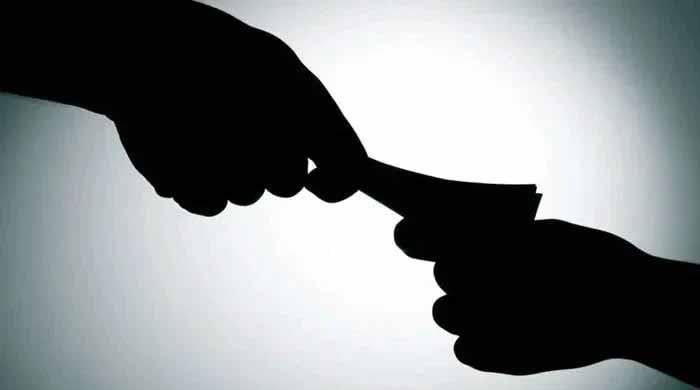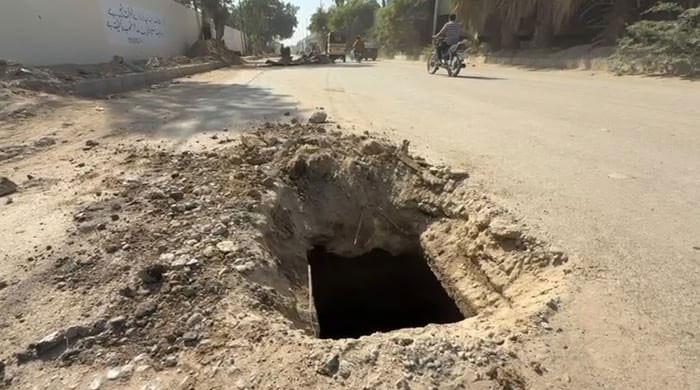Cricket—not just a 'game' in Pakistan and India
In the last four decades, cricket has become more than a sport in Pakistan and India for all the wrong reasons
June 16, 2019
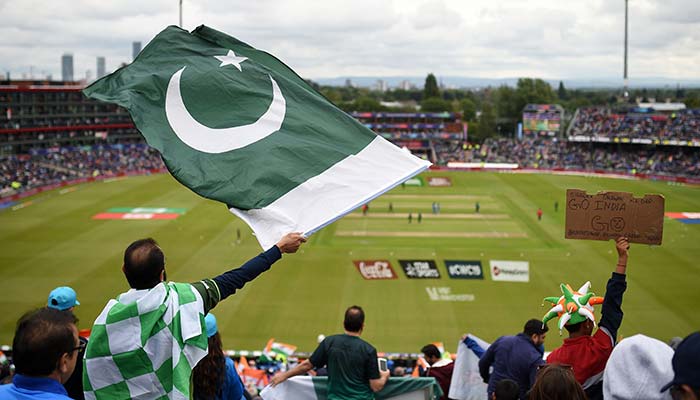
Billions of people in Pakistan and India must have prayed for 'no rain' on Sunday at Manchester, as they wanted to see the clash of two great cricketing nations and a 'test of nerves' between archrivals. Cricket is not just a game in India and Pakistan, it is a way of life for all classes and segments of society.
It is such a tense situation before, during, and after the match that, perhaps, players of either side do not mind a point each due to rain as 'defeat' is not an option in this match because of the possible fallout back home. Winners can become heroes overnight, and zeroes in case of defeat.
In the last four decades, cricket has become more than a sport for all the wrong reasons as the Indian government insists on a rigid stance over bilateral ties even at the cost of billions of rupees, which could have been earned by promoting sports.
Unfortunately, cricket has become hostage to a negative political narrative in India, as the Indian government links it to resolving disputes. But, only two days before the match, the report that the two countries' cricket fans rewarded Pakistan's popular 'Chacha cricket'—known as an ambassador of cricket around the world—was certainly heartening. Such a goodwill gesture always helps in easing tensions.
Cricket can be the best answer to extremism and bringing people close to each other—provided that we really want that.
How cricket can change the life of cricketers in the two countries could be judged from the fact that it played a leading role in transforming Imran Khan, the captain of the 1992 World Cup team, into not just a popular politician but the Prime Minister of Pakistan.
"It is true that the victory in the 1992 World Cup made a lot of my dreams come true…like the Shaukat Khanum hospital and where I am, today," he once said.
Pakistan Tehreek-e-Insaf (PTI), in the last two elections in 2013 and 2018, showed glimpses of the 1992 final to lift its leader Imran Khan's political image as a successful leader. Had Pakistan not won the 1992 World Cup, Imran would have been remembered as just another good fast bowler.
When he was elected as the prime minister, the first thing Imran did was to extend invitation to his old cricket colleagues in India—Kapil Dev, Sunil Gavaskar, and Navjot Singh Sidhu—to attend his oath-taking ceremony. Sidhu came to Pakistan, the Indian team led by Virat Kholi sent a signed bat, while Sunil Gavaskar and Kapil Dev sent goodwill messages. However, they could not come because of other prior engagements.
The rise of Imran Khan also brought a change in the mindset of the people, particularly in Khyber Pakhtunkhwa. In the post 9/11 period, the Taliban practically banned the game and termed it 'un-Islamic'. Cricket is the most popular sport in the province today.
In the last 20 years, Khyber Pakhtunkhwa produced some world class players, and has now become a prime nursery for emerging cricketers along with Lahore and Karachi.
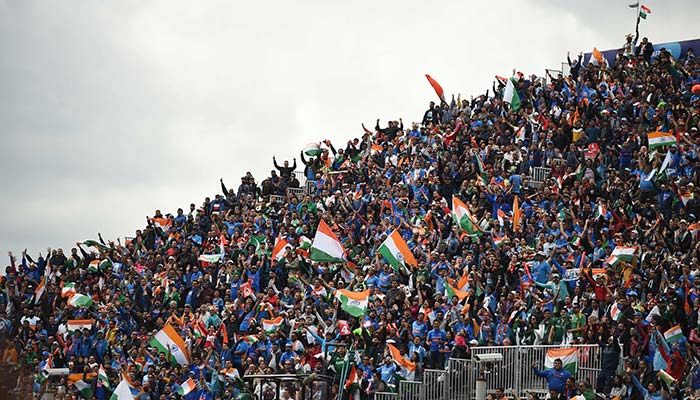
Cricket is such a popular game in the two countries that life comes to a standstill during any match between the two neighbours. In the last 40 years, the game has replaced hockey, which until the 1970s was the most popular sport.
Cricket also changed the Pakistan-India political landscape. It is part of the Bharatiya Janata Party's (BJP) 'political narrative' particularly under Indian Prime Minister Narendra Modi.
Even prior to the World Cup 2019, there were reports in the Indian media that their cricket team might concede two points rather playing with Pakistan. It was either because BJP won the elections or better sense prevailed that the idea was dropped.
It is unfortunate that the Indian government today has linked bilateral ties between the two countries with alleged cross-border terrorism. In the 1970s, it was the other way around—India wanted improvement in sports and cultural ties beside people-to-people dialogue first and resolving Kashmir and other disputes later.
Late General Zia-ul-Haq surprised Indians when he suddenly went to India to watch a Pakistan-India Test match, an act later termed 'cricket diplomacy'. Later, former Prime Minister Nawaz Sharif followed the same practice and once took a very bold decision by sending the Pakistan team to India despite an ugly incident, when Indian hardliners damaged the New Delhi wicket and the series was about to be cancelled.
Former Indian Prime Minister and BJP leader, late Atal Bihari Vajpayee in reaction to Sharif's gesture, condemned the Indian extremists and urged the people and politicians to "keep politics away from sports". But, after when Modi succeeded him as BJP's top leader, he did the opposite to Vajpayee's vision.
One of the leading sports journalists, Qamar Ahmad, a veteran who covered over 400 Test matches, told me that in the 1970s, an Indian colleague introduced him to his child me with his kid as someone from Pakistan. The boy replied: "Oh, from where Zaheer Abbas played!"
Indian cricketers cannot forget some of the good as well as the bad memories playing against each other. Can cricketing legend and India's 'Little Master' Sachin Tendulkhar forget Karachi's National Stadium, where he made his Test debut? I am sure former Indian opener Gundappa Viswanath still remembers Imran Khan's yorker. While the batting of 'Asian Bradman' Zaheer Abbas against great Bishen Singh Bedi on this very ground in Karachi practically brought an end to his cricketing career.
I hope better sense prevails and cricket can be separated from politics or bilateral cricketing ties can be used to ease tensions. Let the best team on the day win.
The writer is a senior analyst and columnist of GEO, The News and Jang
Twitter: @MazharAbbasGEO




